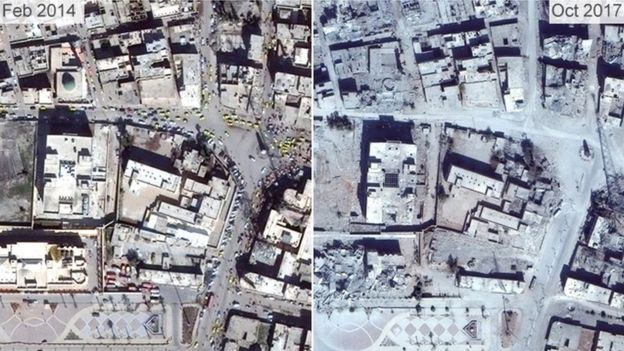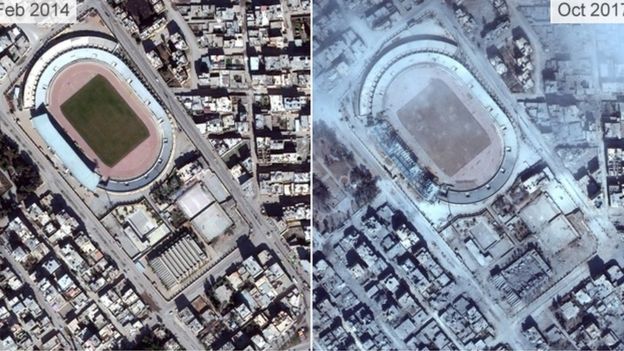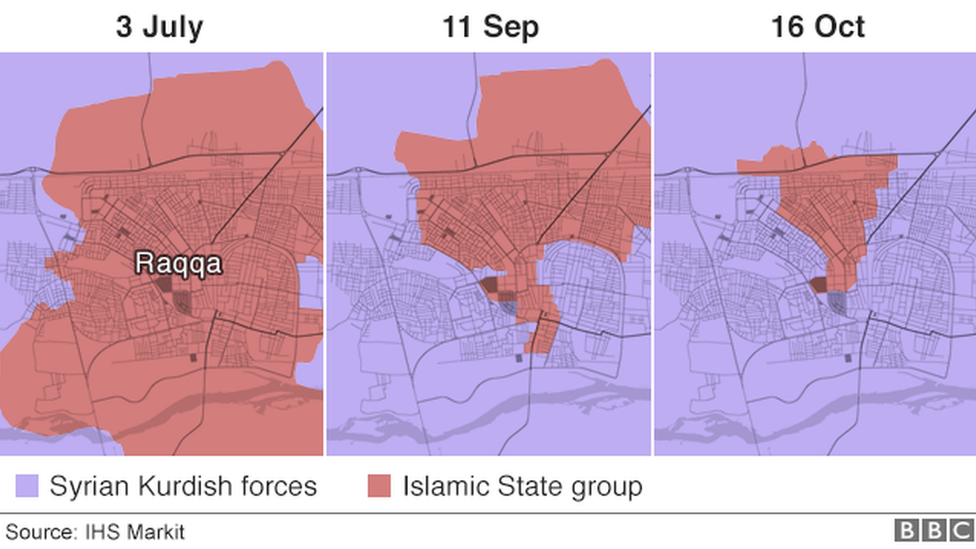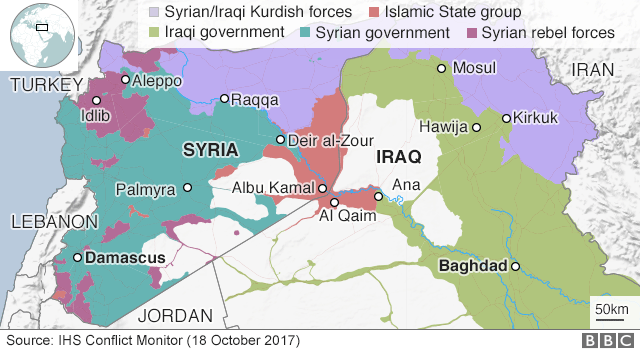UN Peacekeepers Ready to Go Into Raqqa in Syria
A UN official in Damascus told the BBC access to the area was the main priority while warning that some 300,000 people who had fled the city had "enormous" needs in nearby camps.
Aid workers have said it may take years before they can return to their homes.
A US-backed alliance of Syrian fighters says it has full control of the city.
Operations were under way to uncover jihadist sleeper cells and remove landmines from the last areas of Raqqa, Syrian Democratic Forces (SDF) spokesman Mustefa Bali said.
The four-month assault against IS destroyed Raqqa's civilian infrastructure and homes, humanitarian agencies say.
Linda Tom, a UN official in the Syrian capital Damascus, said no civilians were believed to be in the city and the end of the battle for Raqqa was a "big change" for humanitarian workers.
"If we're now in a better position to get to people who need assistance, we're ready to do it and we're ready to increase our assistance," she said.
Before and after IS: Raqqa's clock tower roundabout
 DIGITAL GLOBE
DIGITAL GLOBE
She added that aid groups were struggling to assist the thousands of civilians who were in dozens of displaced camps around Raqqa, and who were in urgent need of water, food, and medicine.
World Food Program Middle East Director Muhannad Hadi told AP news agencythe defeat of IS in Raqqa was a "game-changer" for the work of humanitarian agencies.
On Tuesday, aid group Save the Children warned the humanitarian crisis in north-eastern Syria was "rapidly escalating", with camps "bursting at the seams".
"Most families have little or nothing to return home to and will likely be stuck in camps for months or years to come," the charity said in a statement.
Before and after IS: Raqqa's stadium
 DIGITAL GLOBE
DIGITAL GLOBE
The SDF said on Tuesday it had taken Raqqa, a city where IS made the headquarters of its self-styled "caliphate" in early 2014, implementing an extreme interpretation of Islamic law and using beheadings, crucifixions, and torture to terrorize residents who opposed its rule.
NOTE: No One is Suggesting ISIS is totally defeated. They still have thousands of miles of Territory in Iraq and Northern Syria. They are in Africa and Afghanistan, they fight for a religious idea in which they don't wait for nonbelievers to die to be punished but they do it while people are alive and kicking and the younger the better if they can't be persuaded to join.
NOTE: No One is Suggesting ISIS is totally defeated. They still have thousands of miles of Territory in Iraq and Northern Syria. They are in Africa and Afghanistan, they fight for a religious idea in which they don't wait for nonbelievers to die to be punished but they do it while people are alive and kicking and the younger the better if they can't be persuaded to join.
The city also became home to thousands of jihadists from around the world who heeded a call to migrate there by IS leader Abu Bakr al-Baghdadi.

The jihadist group still has a number of footholds, the largest of which runs along the Euphrates river valley in the south-eastern province of Deir al-Zour.
However, the SDF and Syrian government forces have launched separate offensives in the province with the aim of taking control of a key crossing on the border with Iraq.
IS has also suffered a series of defeats in recent months to Iraqi government forces, who are advancing along the Euphrates on the other side of the border.
The US-led coalition said on Tuesday that forces it supported had reclaimed 93,790 sq km (36,200 sq miles) of Iraqi and Syrian territory seized by IS in 2014, and freed 6.6 million people from jihadist control.
From BBC 
Comments